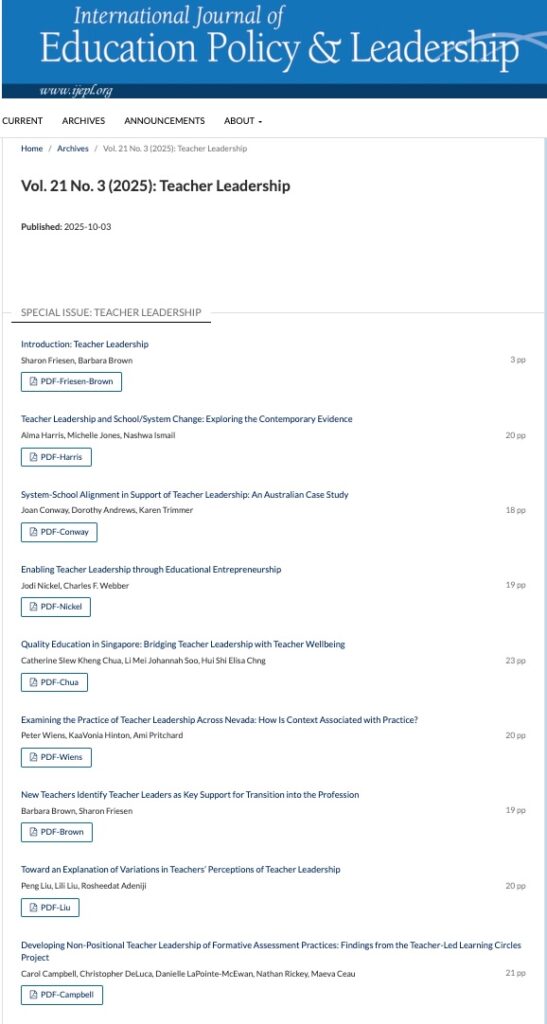I’m excited to share a new special issue on Teacher Leadership in the International Journal of Education Policy & Leadership, which I had the privilege of co-editing with Dr. Sharon Friesen. This collection brings together eight articles that explore how teacher leaders influence school and system improvement across diverse educational contexts.
Authors highlight teacher leaders as influencers, and professionals who drive meaningful change, strengthening teaching, learning, and collaboration within their schools and beyond.
This special issue offers a rich view of how teacher leadership is involving in different global contexts and how teachers enact leadership in ways that shape professional learning cultures and educational innovation.
Read the full issue here – https://journals.sfu.ca/ijepl/index.php/ijepl/issue/view/255
#TeacherLeadership #EducationalChange #ProfessionalLearning #SchoolImprovement #EducationalLeadership #Research


